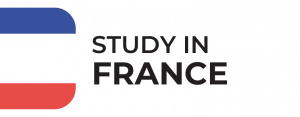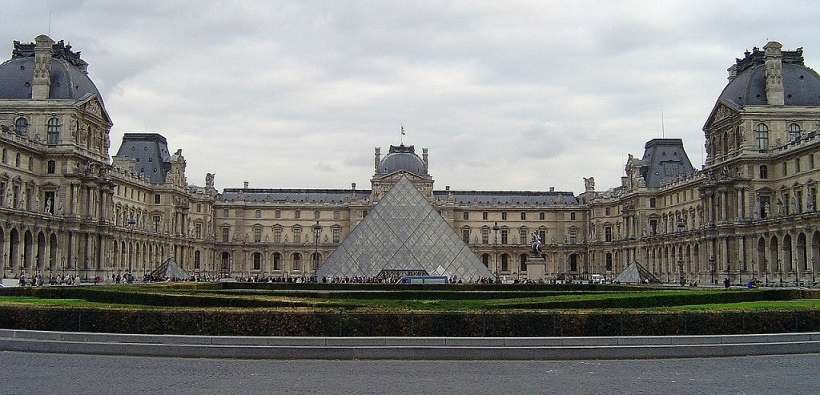Each country’s education system differs from the other, since there are many aspects to look at. The French education system is particularly known for being complicated when it comes to different categories and types of diplomas and tests. The French schools are known for being strictly educational. Meaning they don’t have much extracurricular activities at least related to the school (they don’t have much funding due to the low or no costs of tuition), no school dances or major events, no posters like you see in other schools in Europe. It is very common in France to repeat a school year if the students do not achieve the average grades they need to pass the classes.
The French education system consists of three stages: primary education, secondary education, and higher education.
Primary education
While day care and kindergarten are not mandatory, from the age of 6 all children must enrol in school. Primary school consists of five years of study, from the age 6-11 (similar to a US elementary school).
Secondary education
After primary school, students move to secondary school, which is divided into two stages:
- The collège (middle school), is composed of four years of study, for students ages eleven through fifteen. Students receive a “brevet des collèges” upon its completion.
- The lycée (high school) for the final three years of secondary education. Students then take an examination to receive the baccalauréat (bac) qualification (high school diploma).
Higher education
After high school, students choose either a vocational diploma or an academic diploma.
Vocational diplomas:
The DUT (diplôme universitaire de technologie) and BTS (brevet de technicien supérieur) are two-year technology-oriented degrees. BTS courses are offered by high schools, whereas DUT are awarded by universities. A DUT or BTS may be followed by one additional qualifying year of study, leading to a “licence professionnelle”.
Academic diplomas:
There are three types of higher education institutions in France: universities, Grandes écoles, and specialized schools.
Universities
Universities are public institutions that offer academic, technical, and professional degrees to any student who has obtained a “baccalauréat “ or its foreign equivalent. University study leads to degrees in many fields. Degrees are three different levels of achievement
- Licence
- Master
- Doctorat
Grandes écoles
“Grandes écoles” are selective public and private institutions. They are similar to universities, but typically offer a more specialized three-year course of study, in subjects such as engineering, business, or public administration. Students are admitted to the Grandes écoles based on their scores on a competitive exam. Before taking this exam, students must have obtained a “baccalauréat”, and they often have taken a two-year preparatory course (cours préparatoires or prépas). Students graduate from a Grande école with a master’s degree (master).
Specialized schools
Specialized schools are public or private institutions that train students for professional careers in specific fields, such as art, architecture, social work, or tourism. They offer licence and master degrees.
The LMD Framework
The LDM framework stands for license, master, doctorate:
- The licence (bachelor). This is a three-year course of study, is an undergraduate degree equivalent to a bachelor’s degree in the English-speaking world.
- The master. This is a two-year course of study equivalent to a master’s degree. The master can be a professional degree (master professionnel), e.g. law, business, or engineering, or it can be a research degree (master recherche), leading towards doctoral work.
- The doctorate. Students holding a master’s degree can complete an additional three years’ coursework to qualify for a doctorate (doctoral-degree equivalent). The doctorate is obligatory for medical doctors, who receive a state diploma in medicine.
Criteria to enrol in a French University
If you want to enroll in a French university, you will typically need the following documents:
- ID photo or driver’s license
- High school transcripts (or relevant equivalent)
- Copy of passport
- A passport sized photo
- Visa
- Proof that you can support yourself financially
- Copy of birth certificate
- Certified translation of the birthplace of your parents
- Essay (if asked)
- English proficiency results (TOEFL, IELTS, Duolingo etc.)
- Application fee (if asked)
- Any other required document depending on the University
French tuition fees
The tuition fees differ depending on the University. On average, here’s how much you might have to pay for tuition in a French University based on your degree.
- Bachelor’s degree: 2,770 euros per year
- Master’s degree: 3,770 euros per year
- PhD’s degree: 2,770 380 per year
For more information on tuition cost in French Universities and how you can get funding, you can read our other article (article here).
Main Differences Between the French and US Education System
The French and U.S. education systems – while both are good in their own rights – have many differences, including schedules, after-school activities, grading systems, and even the student-teacher relationship.
School schedule
French schedule is much longer than the US one. They usually start at 8AM and end around 5 or 6PM. Wednesdays end at noon but they have Saturday morning classes. While in the US, a typical school day starts at 7:30AM and ends at about 3PM.
After-school activities
The length of the hours in the French schools is one of the reasons why they don’t have many school clubs like in the US. They might have main ones like “chess, science” but not creative outstanding ones like you see in the US schools. They only have 2 hours of mandatory “physical education” per week. Whereas in the US they have clubs varying from theatre to sports and academics and any creative club you can think of that students might want to participate in.
Grading
The French system uses numbers from 0-20 to grade their students whereas in the US letters from A to F are used. Aside from the letters/numbers differences, another thing is that the French are not as “lenient” on the grades as the US system is. For example in the US we often see “A+” used or encouraging words to let the students know they have done a very good job. Well in the French grading system getting an A is near to impossible. If you get a 16 mark that’s as good as it’s gonna get. Also as mentioned before, in the US it’s considered a big deal if you have to repeat a whole school year but in the French system it’s actually really common. Read more about the French grading system.
Teacher-student relationship
Having a friendship with a teacher in France is a big no. In the US, students are used to stopping by a teacher’s office asking them a question about the lesson or have the teachers involved in school clubs and collaborate together on different projects, but in France it’s strictly academic. Teachers in France do not prefer at all to “stop by” for questions in fact, they don’t have office hours like the US teachers do. They just come in to teach the lesson and leave. They do have a place where the teachers gather but students aren’t allowed there.
French Schools in English
Studying in English in France is what some international students do if they don’t know how to speak French yet, but they want to enjoy all French things. There are many programmes to choose from in different courses, some of which are the top programmes in Europe and even the world. France is also an international student’s go-to because of the low tuition costs compared to the US or other major countries. And, of course, the chance to be around high academics, enjoy the French culture, and maybe even learn to speak French fluently. To find out more about which programmes international students pick most and what they have to offer, read our article on this topic.


